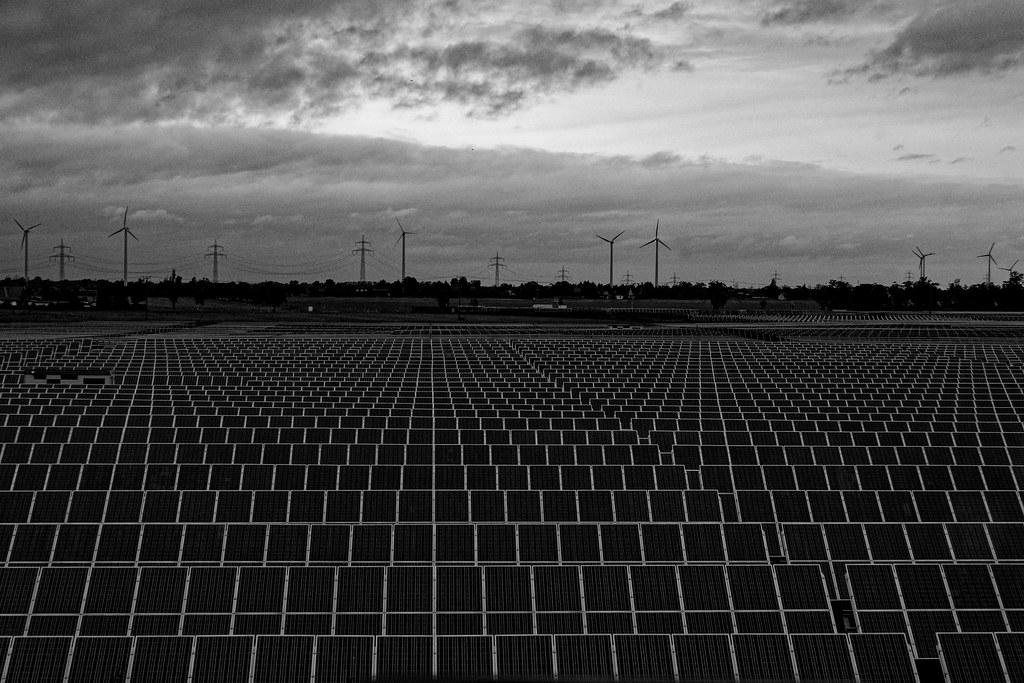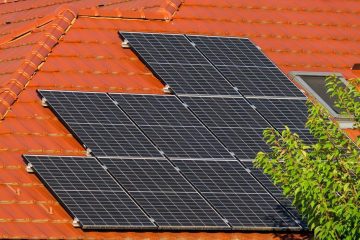Imagine a world where your home not only provides shelter but also generates its electricity from the abundant energy source of the sun. With solar electric systems becoming increasingly popular among homeowners, the concept of harnessing clean and sustainable energy right at your doorstep has never been more achievable. In this article, we will delve into the fascinating realm of solar electric for homes, exploring its benefits, installation process, cost-efficiency, and the overall impact it can have on both your finances and the environment. Join us on this enlightening journey as we shed light on how solar power can revolutionize the way you power your home.
Table of Contents
- Understanding the Benefits of Solar Electric Systems for Home
- Key Factors to Consider Before Installing Solar Panels
- Maximizing Energy Efficiency with Solar Electric Solutions
- Choosing the Right Solar Panel System for Your Home
- Exploring Financing Options for Solar Electric Installations
- Q&A
- The Way Forward


Key Factors to Consider Before Installing Solar Panels
Considering solar panels for your home involves several crucial factors to ensure you make an informed decision. First and foremost, assess your home’s sun exposure. Solar panels rely on sunlight to generate electricity, so it’s essential to determine if your roof or property receives an adequate amount of sunlight throughout the day. Additionally, evaluate your energy consumption to understand how much electricity your household typically uses. This assessment will help you determine the size of the solar panel system needed to meet your energy needs effectively.
Moreover, explore available incentives and rebates for solar panel installations in your area. Many regions offer financial incentives to encourage homeowners to switch to renewable energy sources, making it more cost-effective to go solar. Furthermore, consider the maintenance requirements of solar panels. While they are generally low-maintenance, understanding the necessary upkeep will help you ensure optimal performance and longevity of your solar panel system. By thoroughly considering these key factors, you can make a well-informed decision about integrating solar electric into your home.

Maximizing Energy Efficiency with Solar Electric Solutions
When embracing solar electric solutions for your home, you’re not just tapping into renewable energy – you’re making a conscious choice towards sustainability. With solar power, your household can harness the sun’s abundant energy to reduce reliance on traditional grid electricity.
- Generate your electricity
- Reduce carbon footprint
- Lower energy bills
By investing in solar panels, you’re not only maximizing energy efficiency but also contributing to a greener future. Imagine your roof becoming a power generator, harvesting clean energy to power your daily life sustainably.


Choosing the Right Solar Panel System for Your Home
When it comes to powering your home with solar energy, selecting the right solar panel system is crucial. Each home has unique energy needs and available space for installation, making it essential to choose a system tailored to your specific requirements. Consider factors like energy consumption, roof size, shading, and budget when deciding on the perfect solar solution for your home.
Factors to consider when choosing a solar panel system for your home:
- Energy Consumption: Evaluate your average daily energy usage to determine the size of the solar system needed to meet your energy needs.
- Roof Space: Assess the available roof space and orientation to maximize sunlight exposure for optimal energy generation.
- Shading Issues: Identify any shading from nearby trees or structures that may impact the performance of your solar panels.
- Budget: Set a budget that aligns with your financial goals and explore financing options if needed to make solar energy more affordable.
Creating a sustainable and efficient solar electric system for your home involves careful planning and consideration. By selecting the right solar panel system that fits your energy requirements, roof layout, and budget, you can harness the power of solar energy to reduce your carbon footprint and save on utility bills.

Exploring Financing Options for Solar Electric Installations
When considering solar electric installations for your home, it’s crucial to explore the various financing options available to make your renewable energy transition seamless. Understanding the financial aspects can help you choose the most suitable plan that aligns with your budget and goals.
Some popular financing options to consider include:
- Solar Loans: These are loans specifically designed for solar projects, offering competitive interest rates and flexible repayment terms.
- Power Purchase Agreements (PPAs): With a PPA, a third party owns and maintains the solar panels on your property, and you pay for the electricity generated at a predetermined rate.
Q&A
Q: What are the benefits of installing a solar electric system in my home?
A: Embracing solar electric power for your home comes with a plethora of advantages. Not only does it help reduce your carbon footprint and contribute to a more sustainable environment, but it also allows you to save on electricity bills in the long run. By harnessing the power of the sun, you can generate clean and renewable energy right at your doorstep.
Q: Will installing solar panels increase the value of my home?
A: Absolutely! Installing solar panels can significantly increase the value of your home. Studies have shown that homes equipped with solar electric systems tend to sell faster and at a higher price compared to those without. Potential buyers are often attracted to the cost-saving benefits and eco-friendly appeal of solar energy.
Q: How do I know if my home is suitable for solar electric installation?
A: Most homes are suitable for solar electric installation as long as they have access to direct sunlight for a significant portion of the day. Ideally, your roof should be unobstructed by shade from trees or neighboring buildings to maximize solar energy absorption. A consultation with a solar energy expert can help assess the feasibility of installing solar panels on your property.
Q: What maintenance is required for a solar electric system?
A: Solar electric systems are relatively low-maintenance. Regular cleaning of the solar panels to remove dust and debris is recommended to ensure optimal performance. Additionally, annual inspections by professional technicians can help identify any issues early on and keep your system running efficiently.
Q: Are there any financial incentives for installing solar electric systems?
A: Many governments and utility companies offer financial incentives to encourage homeowners to adopt solar energy. These incentives can include tax credits, rebates, and net metering programs that allow you to sell excess energy back to the grid. Taking advantage of these incentives can make the upfront cost of installing a solar electric system more affordable and yield long-term savings.
The Way Forward
As you reach the conclusion of this enlightening journey into the world of solar electric for your home, let the sun’s powerful rays inspire you to harness sustainable energy and embrace a brighter, more eco-friendly future. By considering the benefits and practicality of solar power, you have taken a significant step towards reducing your carbon footprint while enjoying the economic advantages of renewable energy. Remember, with each beam of sunlight converted into electricity, you are not just powering your home but also contributing to a cleaner, greener planet for generations to come. Embrace the sun, embrace sustainability, and let the light of solar energy guide your path towards a more sustainable tomorrow.




0 Comments